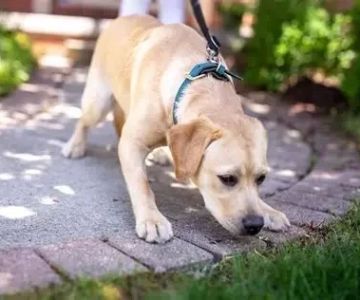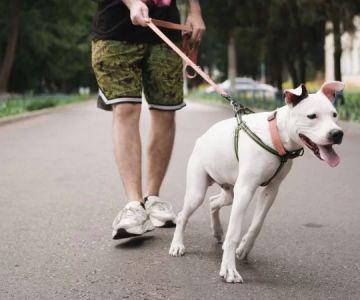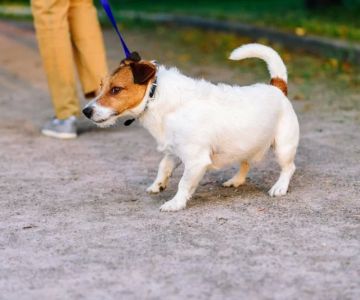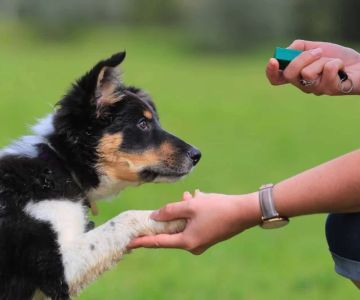How to Train a Dog to Stop Digging in the Garden
When I first noticed my dog’s obsession with digging in the garden, I was a bit frustrated. My garden was becoming a mess, and I couldn’t figure out why my dog was doing it. After some research, patience, and trial-and-error, I learned that digging is a common issue that many dog owners face. The good news is that it can be stopped with the right approach. In this article, I’ll walk you through the reasons why dogs dig, effective training methods, and tips to prevent your furry friend from turning your garden into a digging site.
1. Understanding Why Dogs Dig
Before diving into the solutions, it’s important to understand why dogs dig in the first place. Digging is a natural instinct for many dogs, and it can be caused by several different factors. It’s crucial to identify the root cause before you begin training, as this will help you address the issue effectively.
- Instinctual Behavior: Digging is an instinctive behavior that stems from a dog’s ancestors, who dug to create a cool, comfortable place to sleep or to hunt for food.
- Attention-Seeking: Sometimes, dogs dig to get attention from their owners. If they dig and get a reaction, they may continue doing it.
- Energy Release: Dogs that aren’t getting enough exercise or mental stimulation may dig as a way to release pent-up energy.
- Separation Anxiety: If your dog experiences anxiety when you leave, they may dig as a way of coping with their stress.
- Comfort and Coolness: During hot weather, dogs may dig to expose cooler dirt underneath the surface, especially if they are outside for long periods of time.
Once you understand the root cause, you’ll be able to address the behavior more effectively. Now, let’s talk about how to train your dog to stop digging in the garden.
2. Providing Proper Exercise and Mental Stimulation
If your dog is digging due to excess energy, it’s important to make sure they are getting enough physical and mental stimulation. Regular walks, playtime, and activities can help burn off energy and prevent the need to dig.
- Daily Walks: Taking your dog for daily walks will not only help them expend energy but also provide opportunities for socialization and mental stimulation.
- Interactive Toys: Interactive toys, puzzle feeders, and games like fetch or tug-of-war can help keep your dog mentally engaged and reduce the urge to dig.
- Training Sessions: Incorporating short training sessions into your dog’s daily routine will help keep their mind active and provide structure to their day.
3. Creating a Dog-Friendly Space
If your dog enjoys digging because it’s instinctual or to cool off, creating a designated digging area can help. This space will allow your dog to dig in a controlled area without causing damage to your garden.
- Designated Digging Area: Set aside a specific area in the yard for your dog to dig, such as a sandbox or a small patch of soil. Bury some of their favorite toys or treats to encourage them to dig in this spot.
- Comfortable Spot: Make sure your dog has access to shaded areas or a cool, comfortable spot where they can relax and dig without resorting to your garden.
4. Training Techniques to Stop the Digging Behavior
Now that we understand the causes of digging and have created an environment that encourages positive behavior, let’s look at training techniques to stop your dog from digging in unwanted areas.
- Redirect Their Attention: Whenever your dog starts digging in the garden, immediately redirect their attention to a more appropriate activity like playing with a toy. Reward them with praise or treats when they engage in the right behavior.
- Use Commands: Teach your dog the “stop” or “leave it” command. When they start digging, say the command and immediately guide them away from the area. Consistently reward them when they stop digging on command.
- Block Access: If your dog keeps digging in specific spots, consider blocking access to those areas with barriers or fences. This prevents them from having the opportunity to dig in the first place.
- Positive Reinforcement: Positive reinforcement is key to changing behavior. Whenever your dog avoids digging or chooses to dig in the designated area, offer praise, treats, or a favorite toy.
5. Dealing with Separation Anxiety-Induced Digging
If your dog digs when you’re not around, they may be experiencing separation anxiety. This is a common issue, and it requires patience and consistency to resolve. The goal is to help your dog feel more comfortable when left alone.
- Gradual Departures: Start by leaving your dog alone for short periods and gradually increasing the time. This helps them get used to your absence without causing stress.
- Provide Comfort Items: Leave an item of yours, such as a piece of clothing, in their crate or sleeping area to provide comfort and reduce anxiety.
- Calming Products: Consider using calming sprays, diffusers, or anxiety wraps to help your dog feel more secure when left alone.
6. Consult a Professional Trainer
If you’ve tried various methods and your dog’s digging continues, it may be time to consult a professional trainer. A certified dog trainer can help assess the situation, identify underlying behavioral issues, and provide personalized training solutions to stop the digging behavior.
Remember, training takes time and consistency. It’s important to stay patient and focused on rewarding positive behavior. With the right approach, your dog will learn that digging in the garden is no longer an option, and you can both enjoy a peaceful, well-maintained yard.
SEO Title: How to Stop Your Dog from Digging in the Garden – Effective Training Tips SEO Keywords: dog training, stop digging in garden, dog behavior, dog digging solutions, prevent digging, dog training tips SEO Description: Learn how to train your dog to stop digging in the garden with these proven techniques. Tips on exercise, redirection, and preventing unwanted digging behavior.










